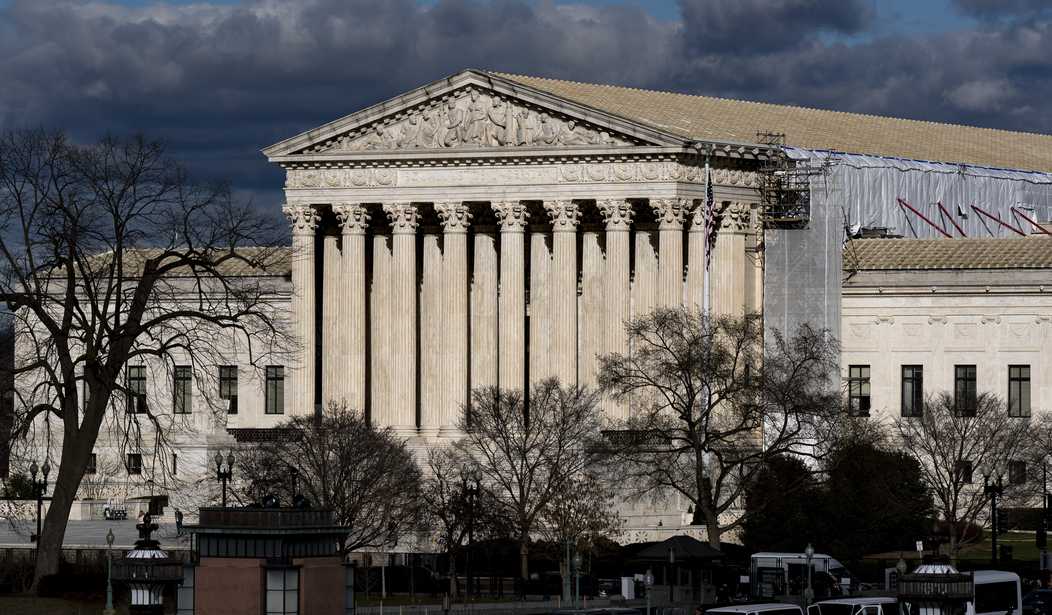Now that oral arguments before the Supreme Court are done for the term, the court is beginning the process of handing down the remainder of the 60-ish decisions it will issue in 2024. Eighteen were already issued this year, leaving roughly 40 to issue between now and the end of June.
The court handed down two more decisions on Thursday. Below is a brief overview of those decisions, both of which were split (and largely along ideological lines).
Again, if you're one of those folks who's interested in what SCOTUS is up to but don't have the time (or mental energy) to read and digest each opinion as it's handed down, then hopefully, you'll find this little endeavor of assistance.
May 9, 2024 Decisions
Date: May 9, 2024
Author: Kavanaugh
Split: 6-3
Dissent: Sotomayor, Kagan, Jackson
Appeal From: 11th Circuit
Basic Facts:
Petitioner Halima Culley loaned her car to her son, who was later pulled over by Alabama police officers and arrested for possession of marijuana. Petitioner Lena Sutton loaned her car to a friend, who was stopped by Alabama police and arrested for trafficking methamphetamine. In both cases, petitioners’ cars were seized under an Alabama civil forfeiture law that permitted seizure of a car “incident to an arrest” so long as the State then “promptly” initiated a forfeiture case. Ala. Code §20–2–93(b)(1), (c). The State of Alabama filed forfeiture complaints against Culley’s and Sutton’s cars just 10 and 13 days, respectively, after their seizure. While their forfeiture proceedings were pending, Culley and Sutton each filed purported class-action complaints in federal court seeking money damages under 42 U. S. C. §1983, claiming that state officials violated their due process rights by retaining their cars during the forfeiture process without holding preliminary hearings. In a consolidated appeal, the Eleventh Circuit affirmed the dismissal of petitioners’ claims, holding that a timely forfeiture hearing affords claimants due process and that no separate preliminary hearing is constitutionally required.
In determining whether the Due Process Clause requires a state or local government to provide a post-seizure probable cause hearing prior to a statutory judicial forfeiture proceeding and, if so, when such a hearing must take place, should district courts apply the "speedy trial" test employed in United States v. $8,850, 461 U.S. 555 (1983) and Barker v. Wingo, 407 U.S. 514 (1972), as held by the Eleventh Circuit or the three-part due process analysis set forth in Mathews v. Eldridge, 424 U.S. 319 (1976) as held by at least the Second, Fifth, Seventh, and Ninth Circuits?
Holding: Affirmed.
In civil forfeiture cases involving personal property, the Due Process Clause requires a timely forfeiture hearing but does not require a separate preliminary hearing.
Skinny:
If the government seizes your personal property via civil forfeiture, you get one hearing (not two), but it must be timely.
Warner Chappell Music, Inc. v. Nealy
Date: May 9, 2024
Author: Kagan
Split: 6-3
Dissent: Gorsuch, Alito, Thomas
Appeal From: 11th Circuit
Basic Facts:
Under the Copyright Act, a plaintiff must file suit “within three years after the claim accrued.” 17 U. S. C. §507(b). On one understanding of that limitations provision, a copyright claim “accrue[s]” when “an infringing act occurs.” Petrella v. Metro-Goldwyn-Mayer, Inc., 572 U. S. 663, 670. But under an alternative view, the so-called discovery rule, a claim accrues when “the plaintiff discovers, or with due diligence should have discovered,” the infringing act. Ibid., n. 4. That rule enables a diligent plaintiff to raise claims about even very old infringements if he discovered them within the three years prior to suit. In this case, respondent Sherman Nealy invoked the discovery rule to sue Warner Chappell Music for copyright infringements going back ten years. Nealy argued that his claims were timely because he first learned of the infringing conduct less than three years before he sued. In the District Court, Warner Chappell accepted that the discovery rule governed the timeliness of Nealy’s claims. But it argued that, even if Nealy could sue under that rule for older infringements, he could recover damages or profits for only those occurring in the last three years. The District Court agreed. On interlocutory appeal, the Eleventh Circuit reversed, rejecting the notion of a three-year damages bar on a timely claim.
Whether the Copyright Act's statute of limitations for civil actions, 17 U.S.C. 507(b), precludes retrospective relief for acts that occurred more than three years before the filing of a lawsuit.
Holding: Affirmed.
The Copyright Act entitles a copyright owner to obtain monetary relief for any timely infringement claim, no matter when the infringement occurred. The Act’s statute of limitations establishes a three-year period for filing suit, which begins to run when a claim accrues (here, the Court assumes without deciding, upon its discovery). That provision establishes no separate three-year limit on recovering damages. If any time limit on damages exists, it must come from the Act’s remedial sections. But those provisions merely state that an infringer is liable either for statutory damages or for the owner’s actual damages and the infringer’s profits. See §504(a)–(c). There is no time limit on monetary recovery. So a copyright owner possessing a timely claim is entitled to damages for infringement, no matter when the infringement occurred.
Skinny:
You may recover damages for a copyright claim — even if the infringement happened long ago — as long as you file the claim within three years of discovering the infringement.
READ MORE:
The Skinny on SCOTUS (2023 Term - December-February)
The Skinny on SCOTUS (2023 Term - March)













Join the conversation as a VIP Member